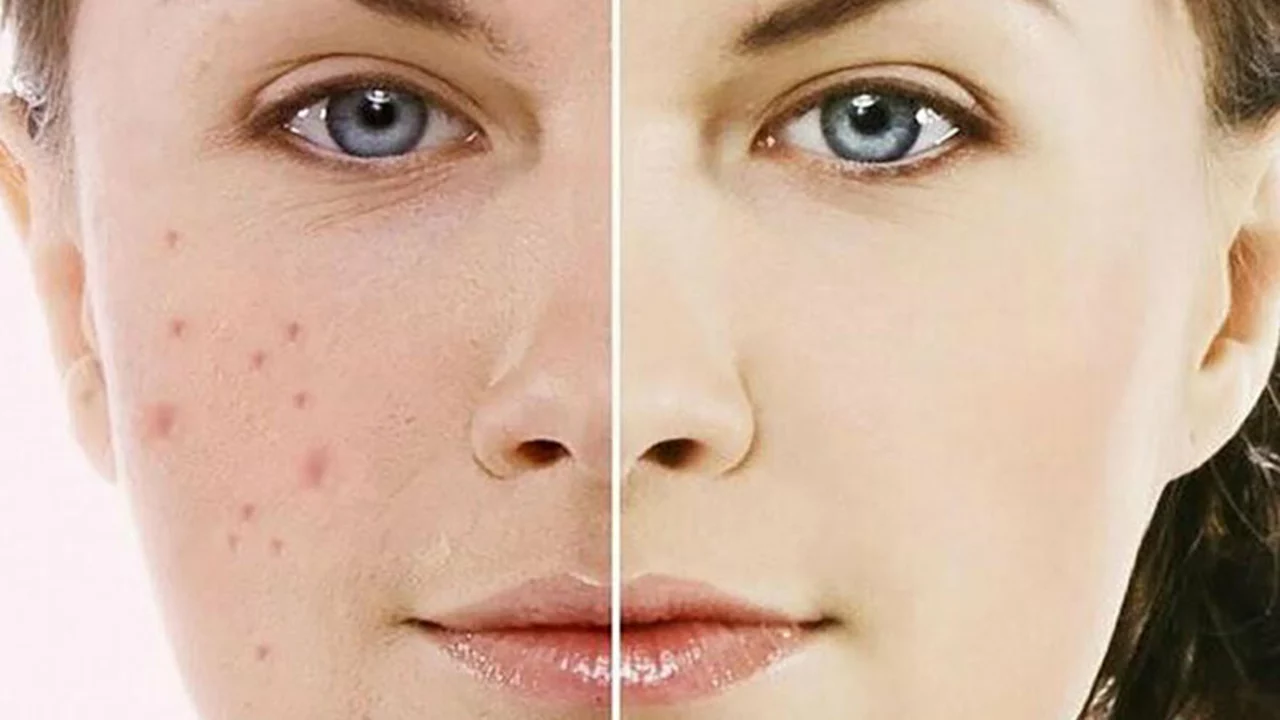Minocycline vs. Doxycycline: Which is Better for Acne Treatment?

Understanding Acne: An Overview
Before we delve deeper into the effectiveness of Minocycline vs. Doxycycline for acne treatment, it's important to understand what acne is. Acne is a common skin condition that affects millions of people worldwide. It's characterized by blackheads, whiteheads, and pimples. Acne primarily affects areas of the skin with a relatively high number of oil glands, including the face, upper part of the chest, and back.
While acne isn't a life-threatening condition, it can be painful, particularly when it's severe. It can also lead to scarring of the skin and emotional stress. Hence, effective treatment is crucial. The good news is, there are several effective treatments available, and among them are Minocycline and Doxycycline.
Introducing Minocycline and Doxycycline
Minocycline and Doxycycline are both antibiotics in the tetracycline group. They are often used as a long-term acne treatment to decrease the number of bacteria in the follicle and surface of the skin. Both are considered as first-line therapies for acne.
While both medicines work in similar ways, they do have some differences which can make one a better choice than the other depending on the individual’s specific circumstances. Let’s delve into each of these treatments in detail.
Detailing Minocycline for Acne Treatment
Minocycline is a broad-spectrum antibiotic that works by inhibiting bacterial protein synthesis. It is highly soluble and can easily penetrate the sebaceous follicle, making it particularly effective for treating acne.
Minocycline is generally well tolerated by most people and offers a convenient once or twice daily dosing. However, it does have some side effects such as dizziness, nausea, and skin pigmentation. Long-term use of Minocycline can also lead to antibiotic resistance, so it's important to use it under the supervision of a healthcare provider.
Focusing on Doxycycline for Acne Treatment
Similar to Minocycline, Doxycycline also works by inhibiting bacterial protein synthesis. It's also a broad-spectrum antibiotic and can be used to treat a wide variety of bacterial infections, including acne.
Doxycycline is usually taken once or twice daily. Some of the common side effects of Doxycycline include stomach upset, diarrhea, or skin sensitivity to sunlight. As with Minocycline, long-term use of Doxycycline can also lead to antibiotic resistance.
Comparing the Effectiveness of Minocycline vs. Doxycycline
When it comes to the effectiveness of Minocycline vs. Doxycycline for treating acne, studies have shown that both antibiotics are similarly effective. Both have been proven to significantly reduce the number of acne lesions over time.
However, the effectiveness of these antibiotics can vary from person to person and also depends on the severity of the acne. A healthcare provider can help determine which antibiotic is likely to work best for an individual's specific situation.
Considering Side Effects and Risks
Both Minocycline and Doxycycline have similar side effect profiles. However, Minocycline is more likely to cause skin pigmentation changes compared to Doxycycline. On the other hand, Doxycycline is more likely to cause stomach upset and increase skin sensitivity to sunlight.
Both antibiotics can also lead to antibiotic resistance if used long-term. Therefore, it's important to use these antibiotics under the supervision of a healthcare provider and to follow their instructions carefully.
Taking into Account Individual Factors
When deciding between Minocycline and Doxycycline for acne treatment, individual factors such as the person's overall health, the severity of their acne, their tolerance to side effects, and their personal preferences should be considered. A healthcare provider can help guide this decision based on these factors.
Cost and Accessibility
Another important factor to consider when choosing between Minocycline and Doxycycline is the cost and accessibility of these medications. In general, Doxycycline tends to be less expensive and more widely available than Minocycline. However, the cost can vary depending on the individual's health insurance coverage.
Final Verdict: Minocycline vs. Doxycycline
In conclusion, both Minocycline and Doxycycline are effective treatments for acne. The decision between the two should be made based on individual factors such as the person's overall health, the severity of their acne, their tolerance to side effects, and their personal preferences. It's also important to consider the cost and accessibility of these medications. As always, the best course of action is to consult with a healthcare provider to determine the most effective treatment strategy.


Dhanu Sharma
July 21, 2023 AT 19:20I’ve tried both minocycline and doxycycline for a while now and honestly they kinda feel the same after a few weeks the redness just eases up and the breakouts thin out. The main thing for me was how easy it was to stick to the dosing schedule and both pills are pretty simple to take. I didn’t notice any major mood swings or weird skin tones with either just the usual mild stomach thing with doxycycline sometimes. If you’re on a tight budget doxycycline usually wins the price battle but if you’ve had pigment issues before minocycline might be the safer bet. Just stay in touch with your dermatologist and keep an eye on any side effects.
Edward Webb
July 21, 2023 AT 20:20While anecdotal observations such as yours provide valuable insight, it remains essential to ground our conclusions in the broader pharmacological literature. The tetracycline class, to which both agents belong, exerts its anti‑inflammatory effect primarily through inhibition of neutrophil chemotaxis and matrix metalloproteinase activity, a mechanism that transcends the superficial distinction between minocycline and doxycycline. Consequently, the decision matrix should incorporate not only cost and tolerability, but also individual pharmacogenomic profiles, which may predispose certain patients to pigmentary changes or photosensitivity. A measured approach, ideally supervised by a qualified dermatologist, ensures that the therapeutic benefits outweigh any potential adverse outcomes.
Snehal Suhane
July 21, 2023 AT 21:20Oh wow, another “groundbreaking” comparison of two antibiotics that have been on the market since the 1960s – how original. I mean, who doesn’t love a good debate over minocycline versus doxycycline when the real issue is the pharma industry pushing endless “new” drugs while we’re stuck with cheap generics. If you’re really looking for something fresh, try drinking water instead of swallowing pills that make your skin turn weird colours or turn you into a lobster under the sun.
Ernie Rogers
July 21, 2023 AT 22:20Look, the discussion isn’t about patriotism or any of that nonsense. It’s about what works for you and what your doctor says. Doxycycline is widely used here and has a solid safety record, so there’s no need to dramatize the “pharma” angle.
Eunice Suess
July 21, 2023 AT 23:20The choice between minocycline and doxycycline is not a trivial matter.
Both drugs belong to the same tetracycline family and share a common mechanism of action.
They inhibit bacterial protein synthesis by binding to the 30S ribosomal subunit.
However, subtle pharmacokinetic differences can influence clinical outcomes.
Minocycline penetrates the sebaceous glands more efficiently due to its higher lipophilicity.
This property can translate into faster reduction of inflammatory lesions for some patients.
Doxycycline, on the other hand, boasts a longer half‑life which allows for once‑daily dosing in many cases.
The dosing convenience can improve adherence, especially for busy individuals.
Side effect profiles also diverge; minocycline has been linked to hyperpigmentation of the skin and mucous membranes.
Doxycycline notoriously increases photosensitivity, making sun exposure a concern.
Cost considerations frequently tip the scales, as doxycycline is generally cheaper and more widely available.
Insurance coverage, however, can vary dramatically from one plan to another.
Ultimately, the prescribing physician must weigh efficacy, safety, and patient preference.
No single answer fits every scenario, and a personalized approach remains paramount.
Consulting a qualified dermatologist will ensure that the selected therapy aligns with your unique health profile.
Anoop Choradia
July 22, 2023 AT 00:20While your exposition is commendably thorough, one must also consider the less discussed influence of pharmaceutical lobbying on prescribing trends. Evidence suggests that certain stakeholders subtly steer clinicians toward more profitable formulations, thereby obscuring the objective risk‑benefit analysis. A vigilant practitioner should therefore scrutinize not only the clinical data but also the economic incentives that accompany each prescription.
bhavani pitta
July 22, 2023 AT 01:20I find the whole debate absurd, as if the universe cares about which tetracycline you choose.
Brenda Taylor
July 22, 2023 AT 02:20Seriously? This is exactly the kind of over‑the‑top drama we need to stop glorifying 🙄.